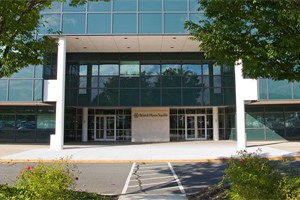
Two prominent shareholders in Bristol-Myers Squibb have said they do not support the company’s $74bn mega-merger with Celgene and will try to stop the deal going through.
First to voice its objection was activist fund Starboard Value, which has said it intends to nominate five board members at a company shareholder meeting on 12 April and has also purchased roughly a million shares (equivalent to 0.06% of outstanding stock).
Potentially more serious for the prospects of the deal was the news that top shareholder Wellington Management, which owns around 7.7% of BMS shares, is also uncomfortable with the merger.
Wellington cited three reasons for its decision, namely that it is undervalues BMS, is risky to execute, and ignores alternative options to create value for BMS’ shareholders that could be more attractive.
“While Wellington agrees that Bristol-Myers should be active in business development that secures differentiated science and broadens the future revenue base, Wellington does not believe that the Celgene transaction is an attractive path towards accomplishing this goal,” it said.
Analyst Andy Hsieh at William Blair thinks however that the deal will still go through as it “contains favourable terms for shareholders from both companies” and points out that Wellington “does not have any sole voting power” despite its sizeable stake.
Shares in Celgene fell almost 9% after news of the revolt emerged, while BMS gained 1.5%, and the revolt reignited speculation that BMS may itself become a hostile takeover target if the merger is blocked.
Last month Credit Suisse suggested AbbVie, Pfizer or Amgen may be able to tackle a transaction of that size, although it pointed out that there are a lot of barriers to overcome including a hefty $2.2bn break-up fee.
In a statement, BMS insists that the combination with Celgene will “deliver substantial benefits to our stockholders” and will create “a leading biopharma with increased scale, while maintaining the same agility and a focus on delivering for patients in core disease areas of high-unmet medical need”.
Hsieh also takes issue with Wellington’s view that the valuation ascribed to BMS in the deal is too low, saying that despite the premium on Celgene’s share price the offer is still lower than historical norms.
“Moreover, the combined company is on track to launching six new products in the near term, and together with existing marketed drugs could bring in significant operating cash flow,” says Hsieh. BMS has estimated that more than $45bn of free cash flow could be generated over the first three full years post-closing of the deal, along with cost savings of around $2.5bn by 2022.
The big question is whether Wellington’s decision to comment publicly on the deal will encourage other reluctant funds to come forward and make their reservations known.




